Southampton top in the UK for General Engineering REF 2014
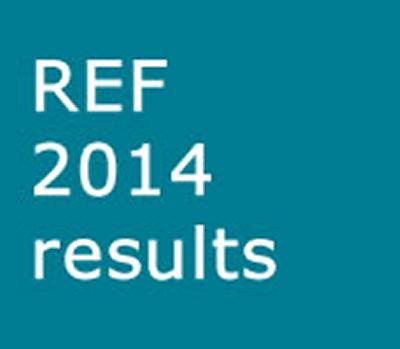
The University of Southampton has come out top in the UK for General Engineering in the latest Research Excellence Framework (REF) results.
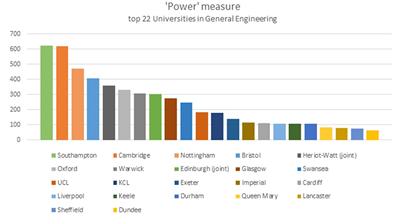
The 2014 REF assesses the quality and impact of research submitted by UK universities. The results will be used by higher education funding bodies in the UK to allocate almost £2 billion of research funding per year from 2015-16.
Results from the REF 2014 have confirmed our research as being the most powerful in General Engineering in the UK (UoA 15). This is shown in figure 1, using the Times Higher Education’s (THE’s) own definition of research power. Additionally, our Faculty provided the most powerful submission to the REF from any single institution anywhere in the UK, in any engineering topic unit of assessment (again using the THE’s own definition of research power).
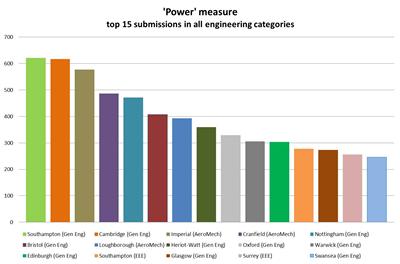
When the research of the last 7 years was assessed across the UK, no matter what category of engineering any UK university was assessed in (General, Civil, Mechanical, Aeronautical), no one beat Southampton for quality and size. See figure 2.
Research from over 190 academic staff was submitted included exciting innovations that improve the quality of life for hearing-impaired new-born babies, detect and track space debris threatening the safety of communication satellites, and save millions of pounds by improving transport system efficiency and infrastructure.
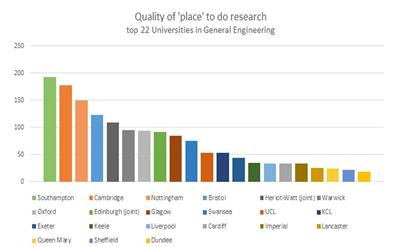
Southampton’s engineering facilities and working environment were judged to be predominantly world-leading and the best in the UK according to Figure 3.
An important element of the REF this time is the impact of the research on society and the economy in the world outside academia. Figure 4 confirms the impact of our research. Only 1 per cent separates the top two Universities for the power of their impact.
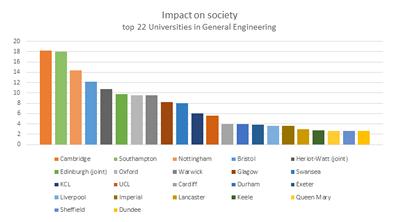
Engineering and the Environment’s mission is to change the world for the better through our research, innovation, enterprise and education. Every day, Southampton’s engineers are applying new knowledge and methods to solve practical problems, benefiting society and improving lives:
- Four million new-born babies have been screened for deafness by the NHS since 2008, using pioneering tests developed at Southampton
- Our traffic control algorithms and forecasting techniques are saving Transport for London £29million a year
- Our research on space debris has given major companies the confidence to invest £1 billion in space debris mitigation measures for their satellites since 2008
Professor William Powrie, Dean of the Faculty of Engineering and the Environment, said “I am thrilled at this independent recognition of the wide-ranging contribution to high-quality research and life-enhancing technology made by the University of Southampton. It is a tribute to the unstinting efforts of all our staff, and the support we receive from key industry partners and research funders including the EPSRC. The outcome is a true reflection of the strength of the Faculty, as we entered all eligible staff."
In addition to being the most powerful in both General Engineering and Electronic and Electrical Engineering research, our Engineering education is highly ranked and students benefit from being taught at the cutting edge of Engineering.
The data can be downloaded from the Times Higher Education’s website.
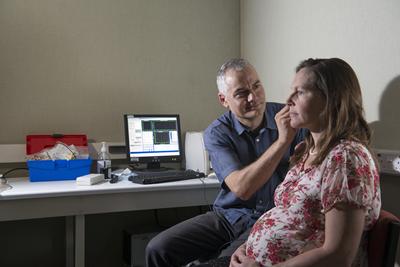


What's related
Links to external websites
The University cannot accept responsibility for external websites.
Notes for editors